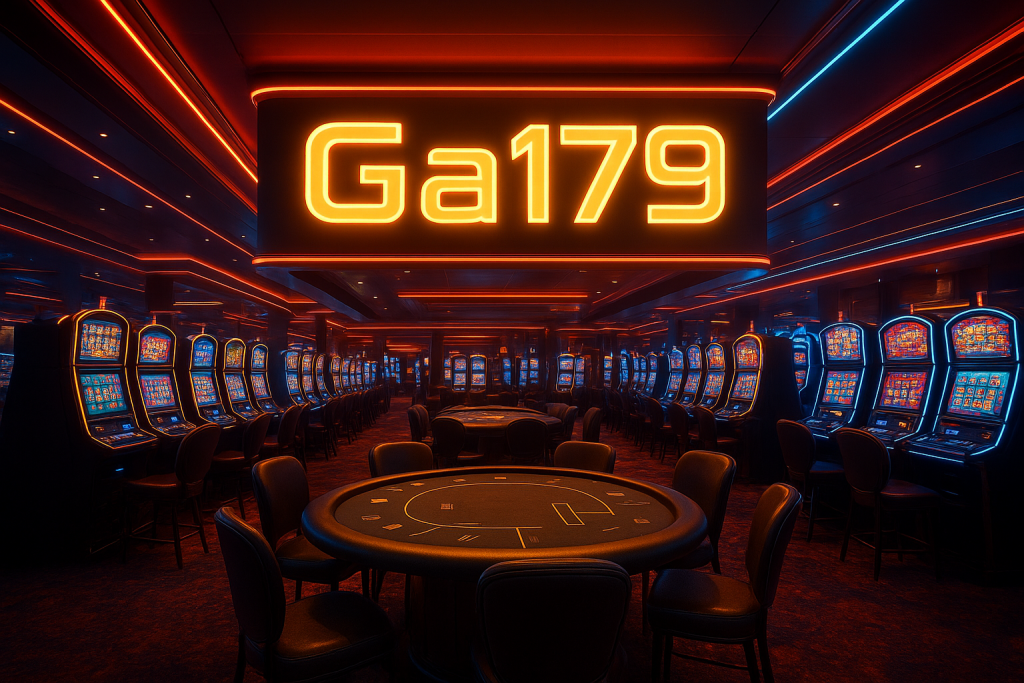
The online casino industry has undergone a dramatic transformation over the past two decades, evolving from basic websites with simple graphics to immersive platforms that rival the experience of physical casinos. This growth has been fueled by advancements in technology, better internet connectivity, and a rising demand for convenient, at-home gaming. Sites like Ga179 are at the forefront of this innovation, offering players not just a range of games but also an engaging, secure, and interactive environment.
In the early days of online gambling, the technology was relatively limited. Websites used simple HTML-based designs, and games relied heavily on basic animations. The experience was functional but lacked the depth and excitement of a real casino. As technology progressed, developers introduced better graphics, sound effects, and animations, making online gaming far more visually appealing.
One of the most significant advancements came with the adoption of Flash technology in the early 2000s. Flash allowed for more dynamic games with smoother animations and faster gameplay. This era also introduced more varied game libraries, with slots, blackjack, roulette, and poker becoming standard offerings. However, Flash was eventually phased out due to security concerns and compatibility issues, paving the way for HTML5.
HTML5 has been a game-changer for the industry. It enables games to run smoothly across all devices—desktops, tablets, and smartphones—without requiring additional plugins. This shift allowed online casinos to embrace mobile gaming fully, catering to players who prefer to play on the go. Mobile apps and browser-based platforms now deliver the same quality and features as desktop versions, ensuring a seamless experience across devices.
Another breakthrough has been the rise of live dealer games. Using high-definition video streaming, casinos can connect players with real human dealers in real time. These games blend the convenience of online play with the authenticity of physical casinos, offering live blackjack, roulette, baccarat, and even game-show-style titles. Players can interact with the dealers and other participants via chat, creating a social experience that was previously missing from online gaming.
Security technology has also evolved significantly. Early online casinos relied on basic encryption methods, but modern platforms use advanced SSL encryption and secure payment gateways to protect player data and transactions. Two-factor authentication and AI-driven fraud detection systems further enhance safety, giving players confidence in their gaming environment.
Artificial intelligence has played an increasingly important role in personalizing the gaming experience. AI algorithms can analyze a player’s preferences and habits, allowing the casino to offer tailored game recommendations, bonuses, and promotions. AI also helps with customer service, enabling instant responses to player queries through chatbots while still allowing for escalation to human agents when needed.
Another major technological development is virtual reality (VR) and augmented reality (AR) gaming. While still in its early stages, VR casinos offer a fully immersive environment where players can walk around a virtual casino, interact with other players, and play games as if they were physically there. AR technology, on the other hand, can overlay digital elements onto a player’s real-world surroundings, creating a unique hybrid gaming experience.
Blockchain technology and cryptocurrency payments are also reshaping the industry. By integrating blockchain, casinos can offer provably fair games, where players can independently verify the fairness of outcomes. Cryptocurrencies like Bitcoin, Ethereum, and others provide faster, more secure, and sometimes anonymous transactions, appealing to a growing segment of tech-savvy players.
Cloud gaming is another innovation with great potential. By hosting games on remote servers, cloud technology allows players to access high-quality games without requiring powerful hardware. This makes premium gaming experiences available to anyone with a stable internet connection, expanding the reach of online casinos.
The future of online casino technology looks even more exciting. We can expect further integration of AI for hyper-personalized gaming, more advanced VR and AR experiences, and improved gamification features that make the act of playing more engaging. Social elements, such as multiplayer modes and community challenges, will likely become more prominent, turning online casinos into interactive entertainment hubs rather than just gaming platforms.
In conclusion, the evolution of online casino technology reflects a broader trend in digital entertainment—toward greater accessibility, interactivity, and personalization. From the humble beginnings of static websites to the dynamic, immersive platforms we have today, the industry continues to push boundaries. For players, this means a future filled with more options, better experiences, and ever-higher standards of security and convenience.